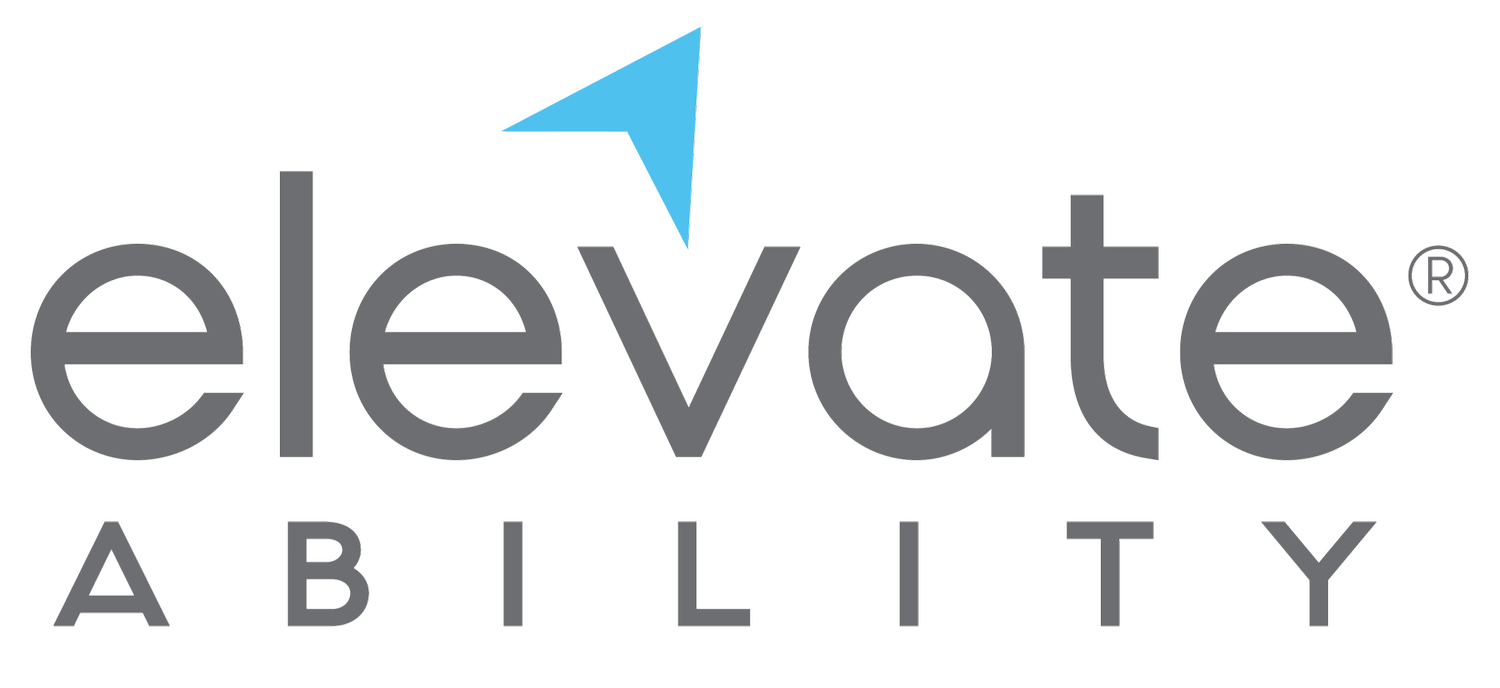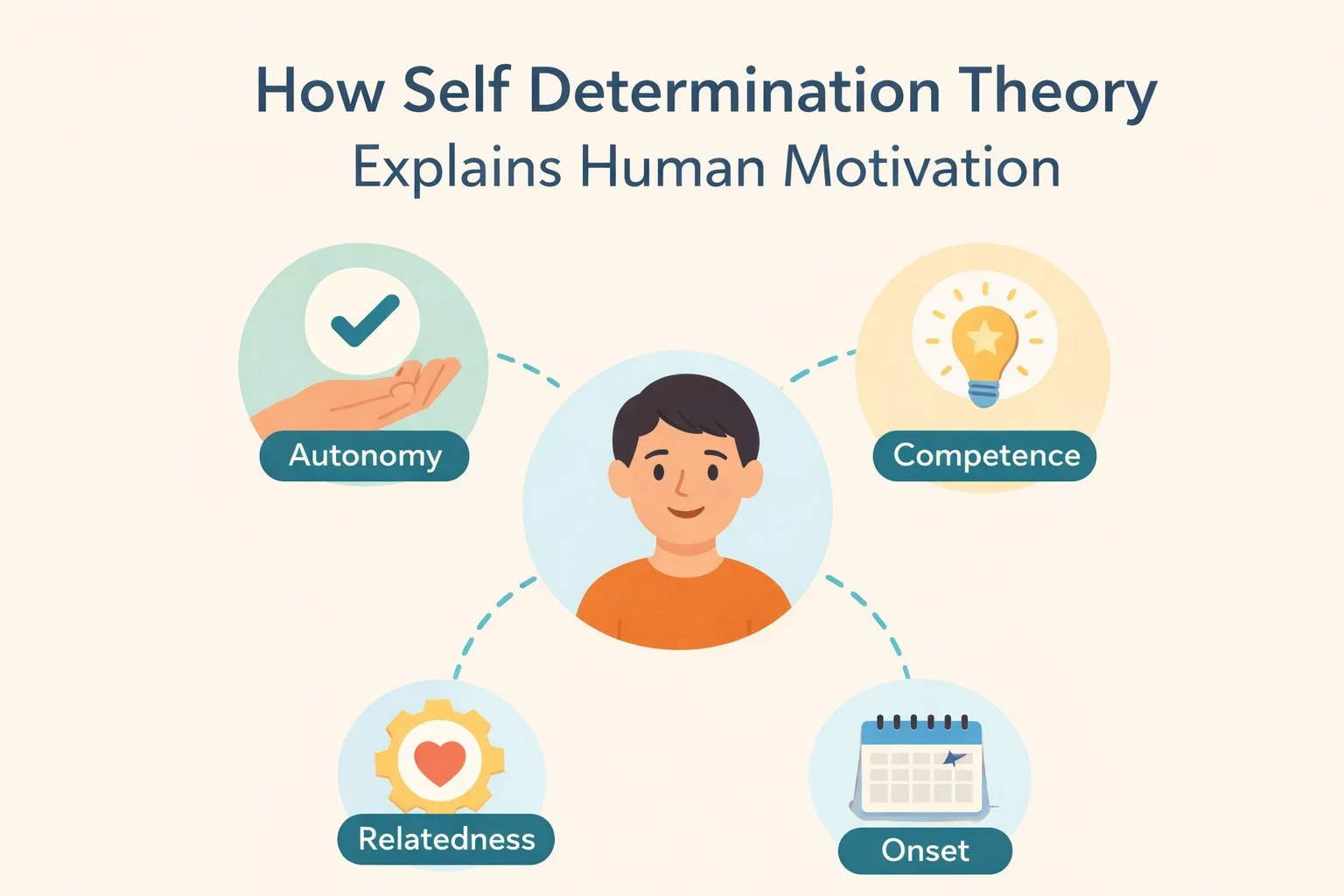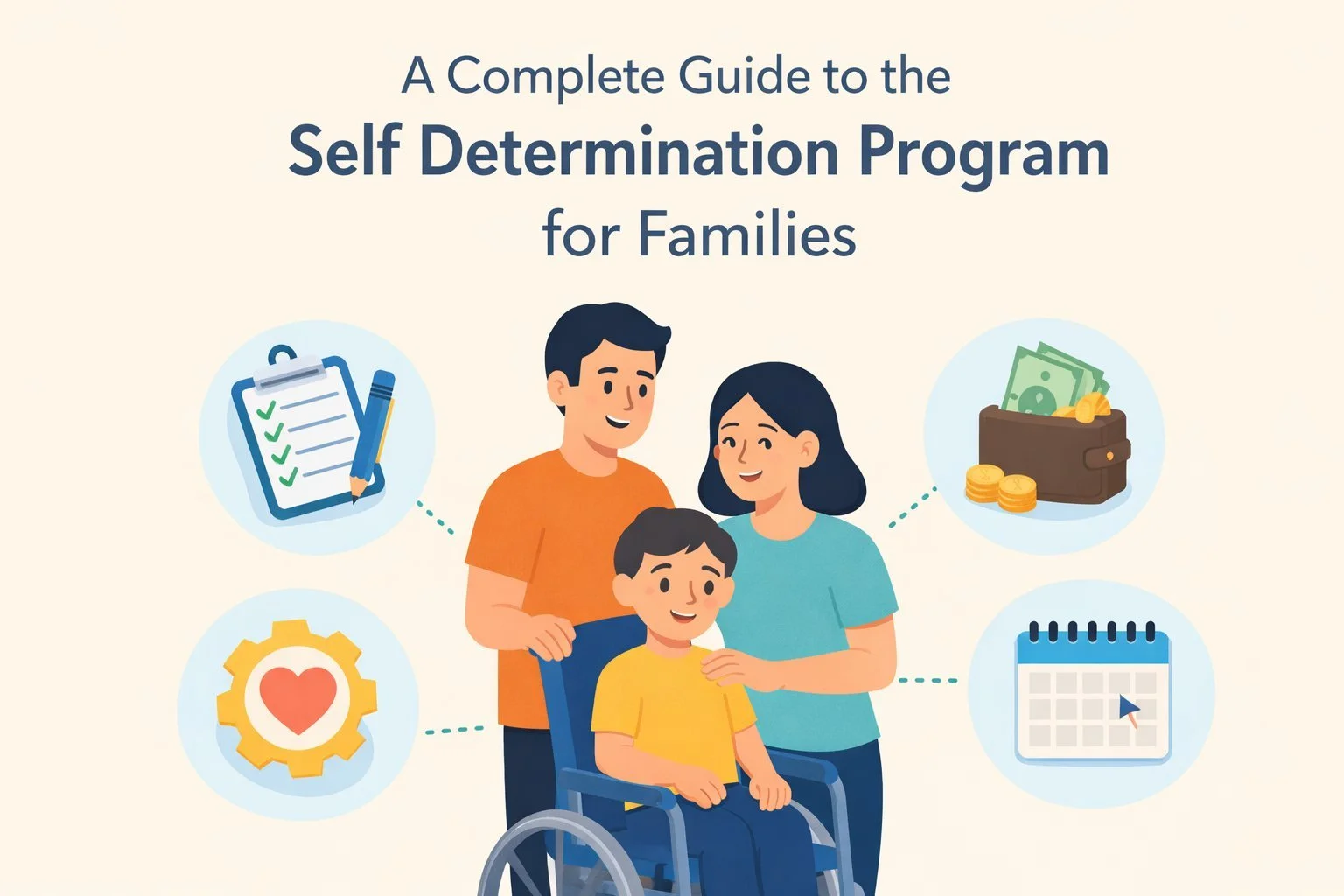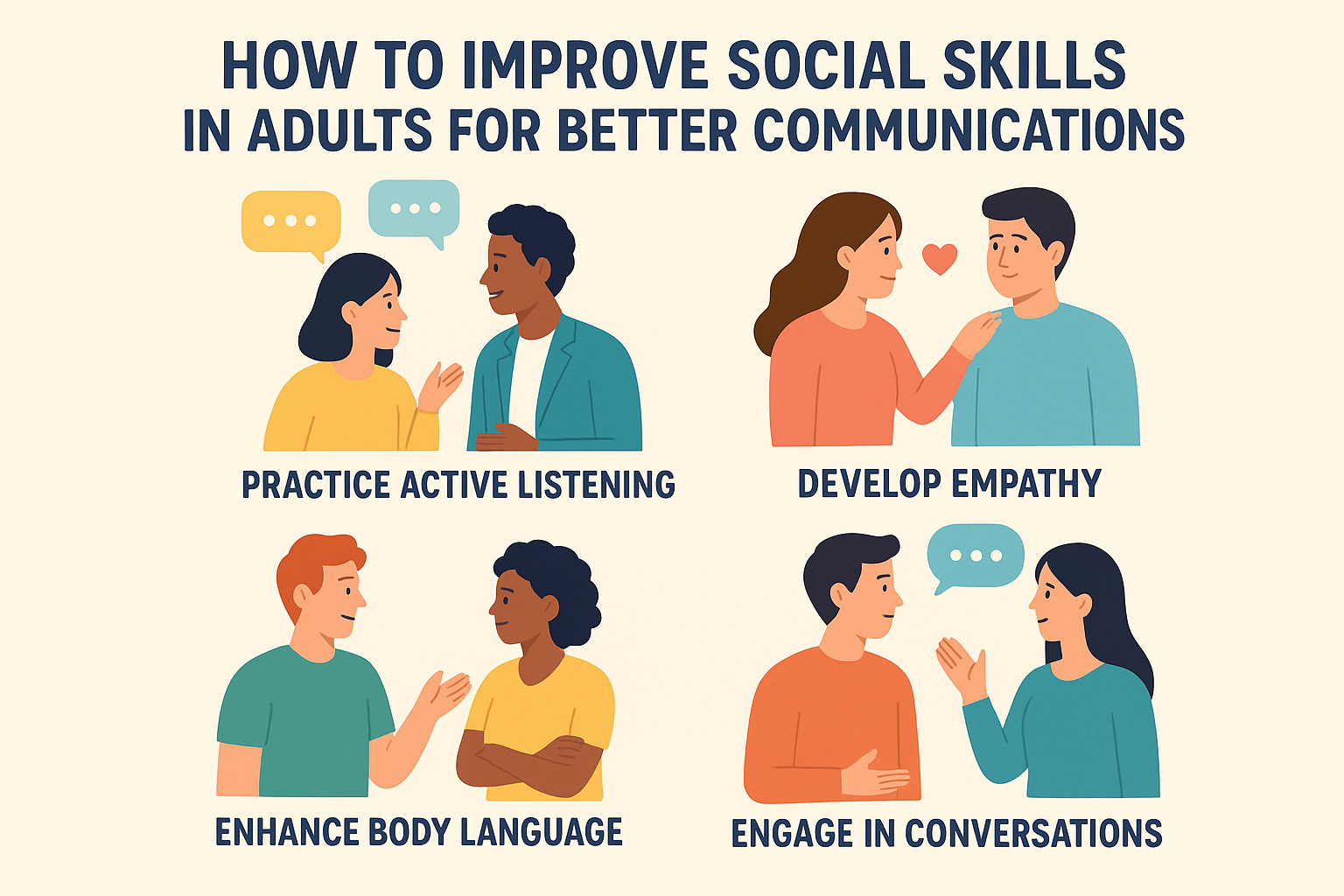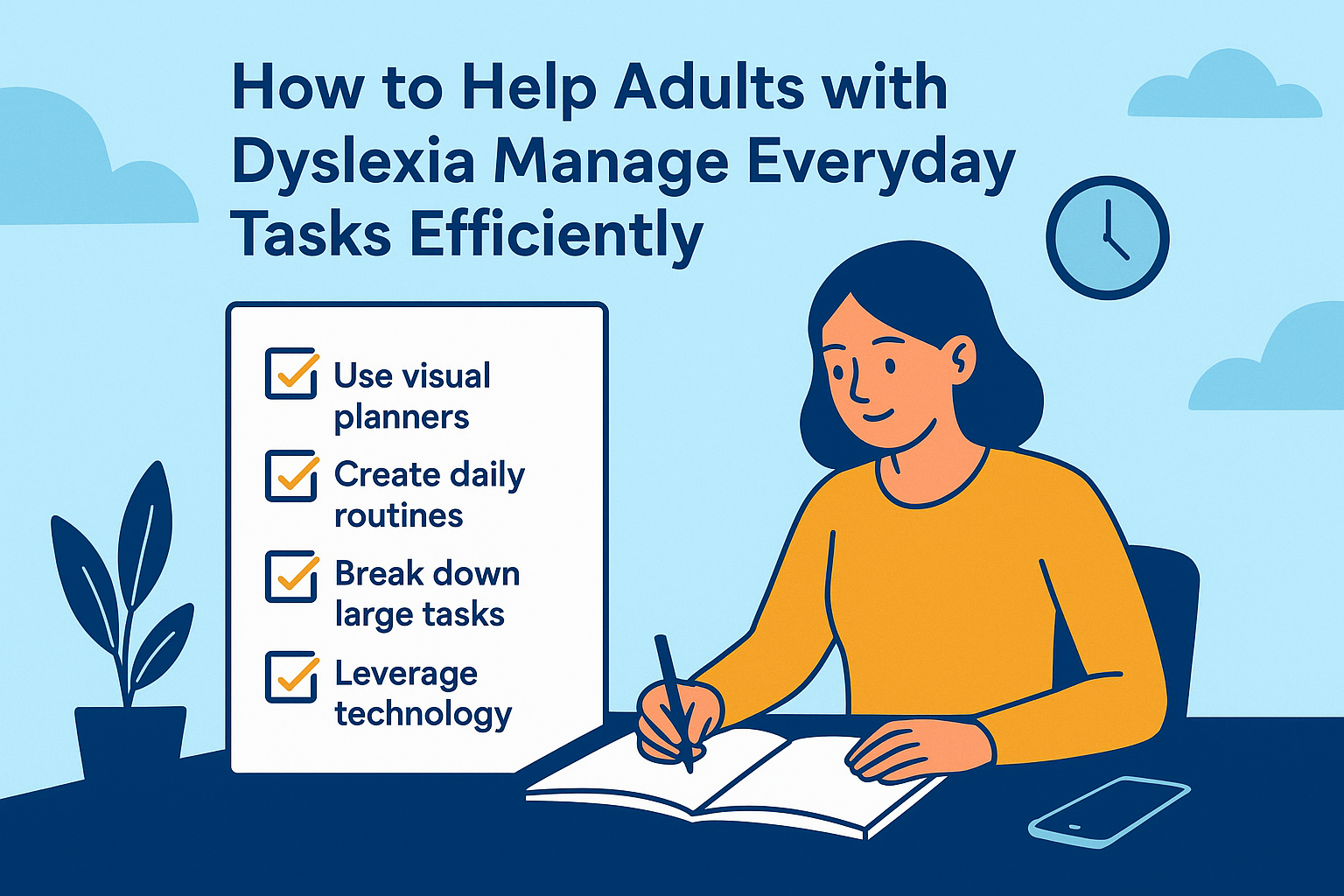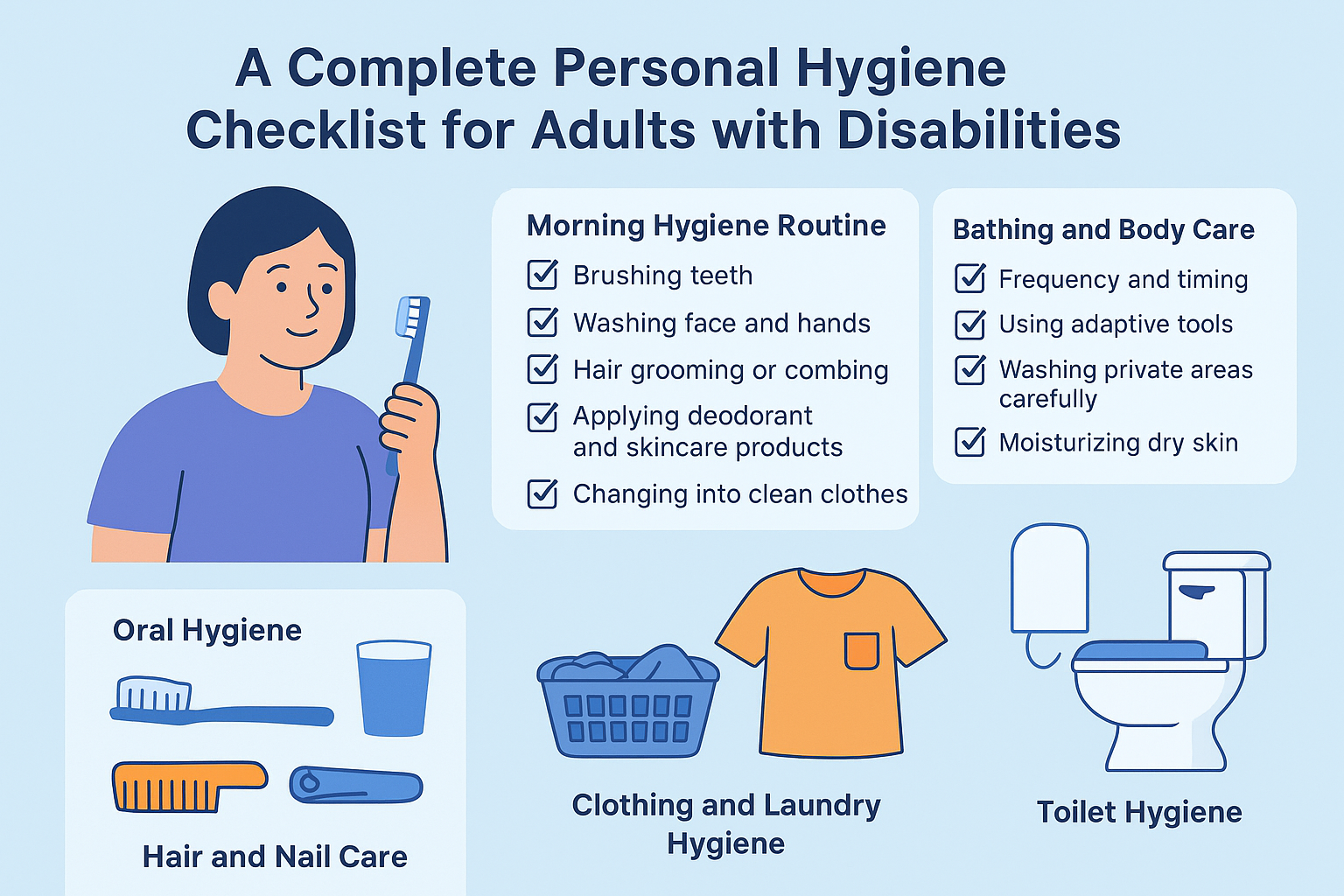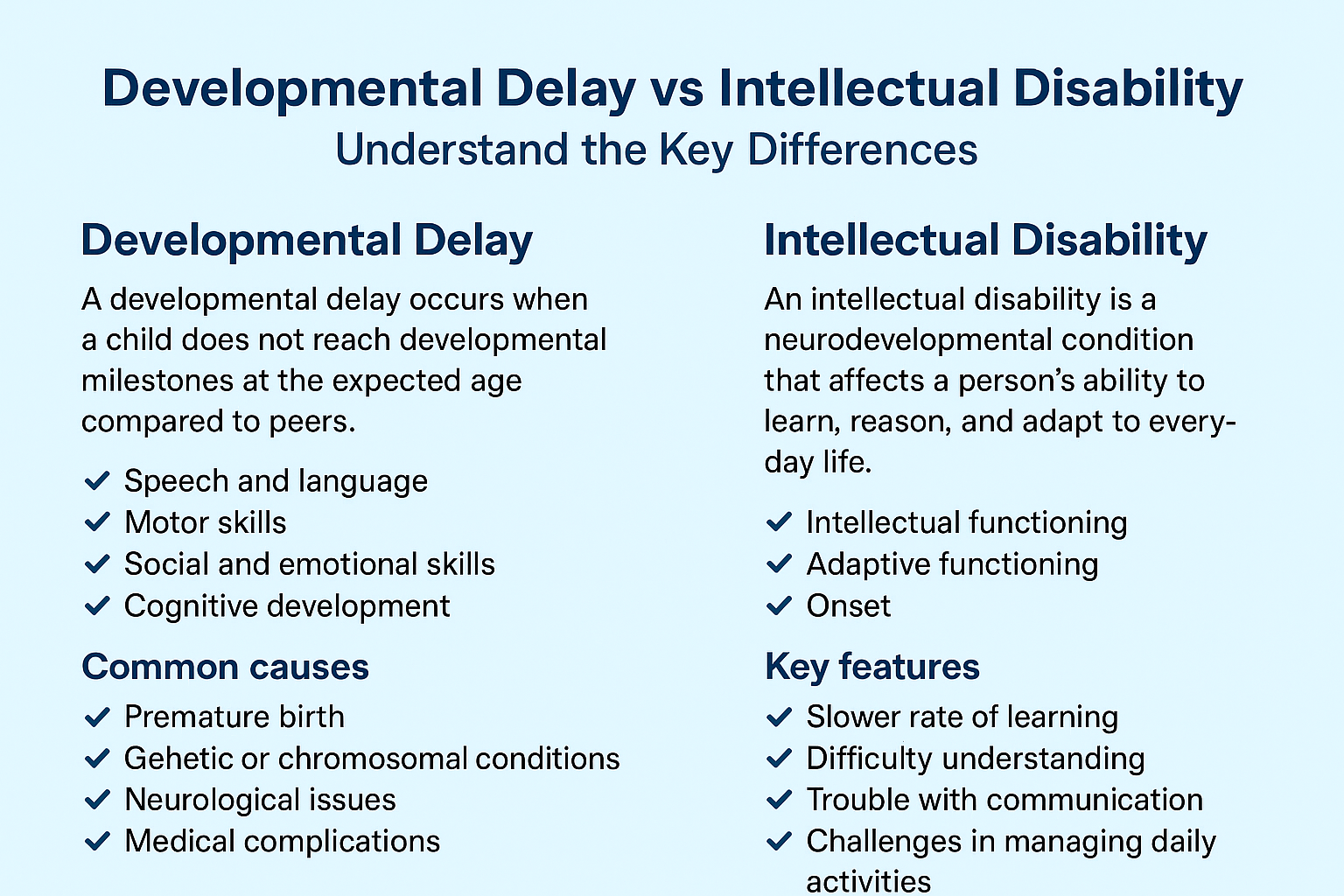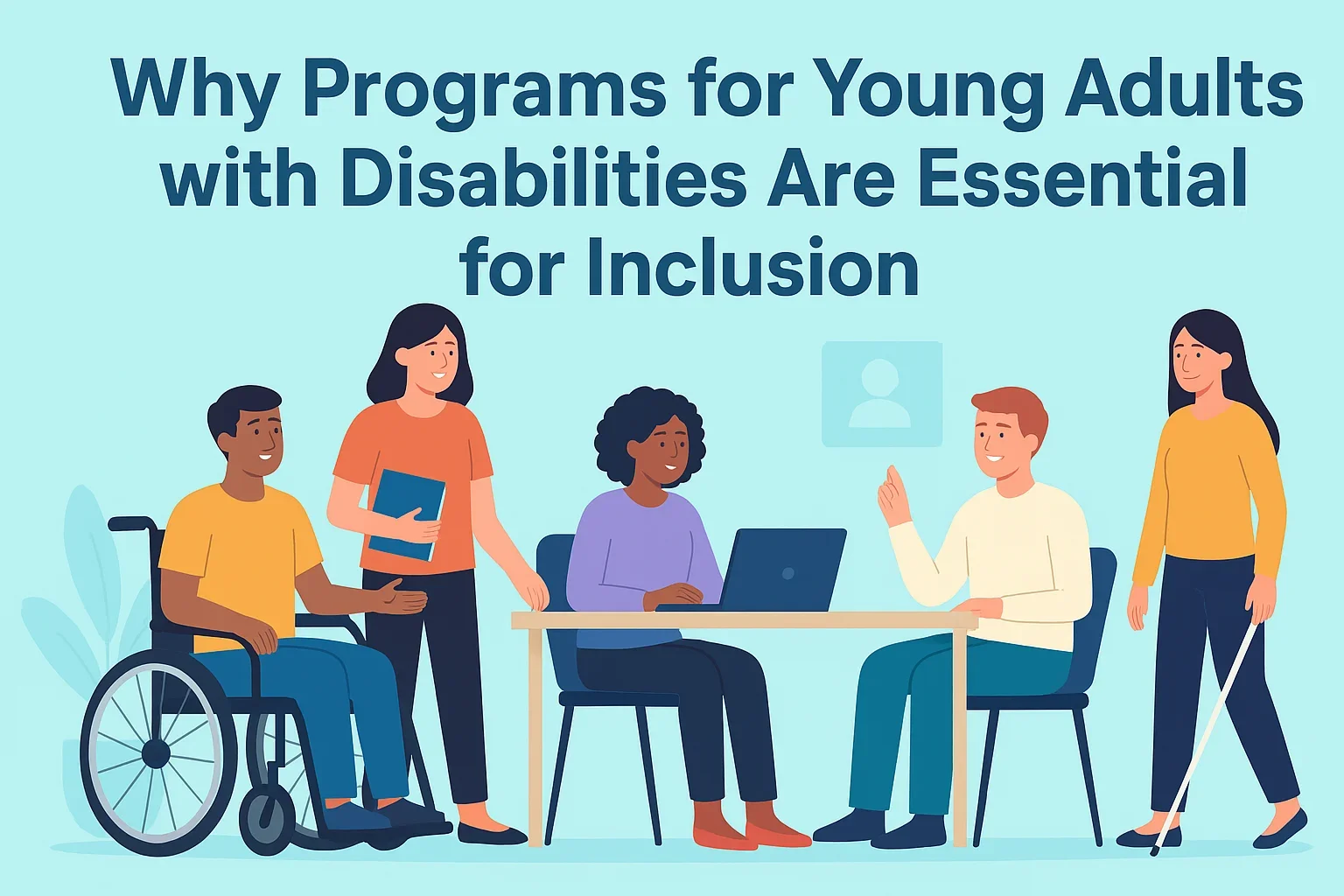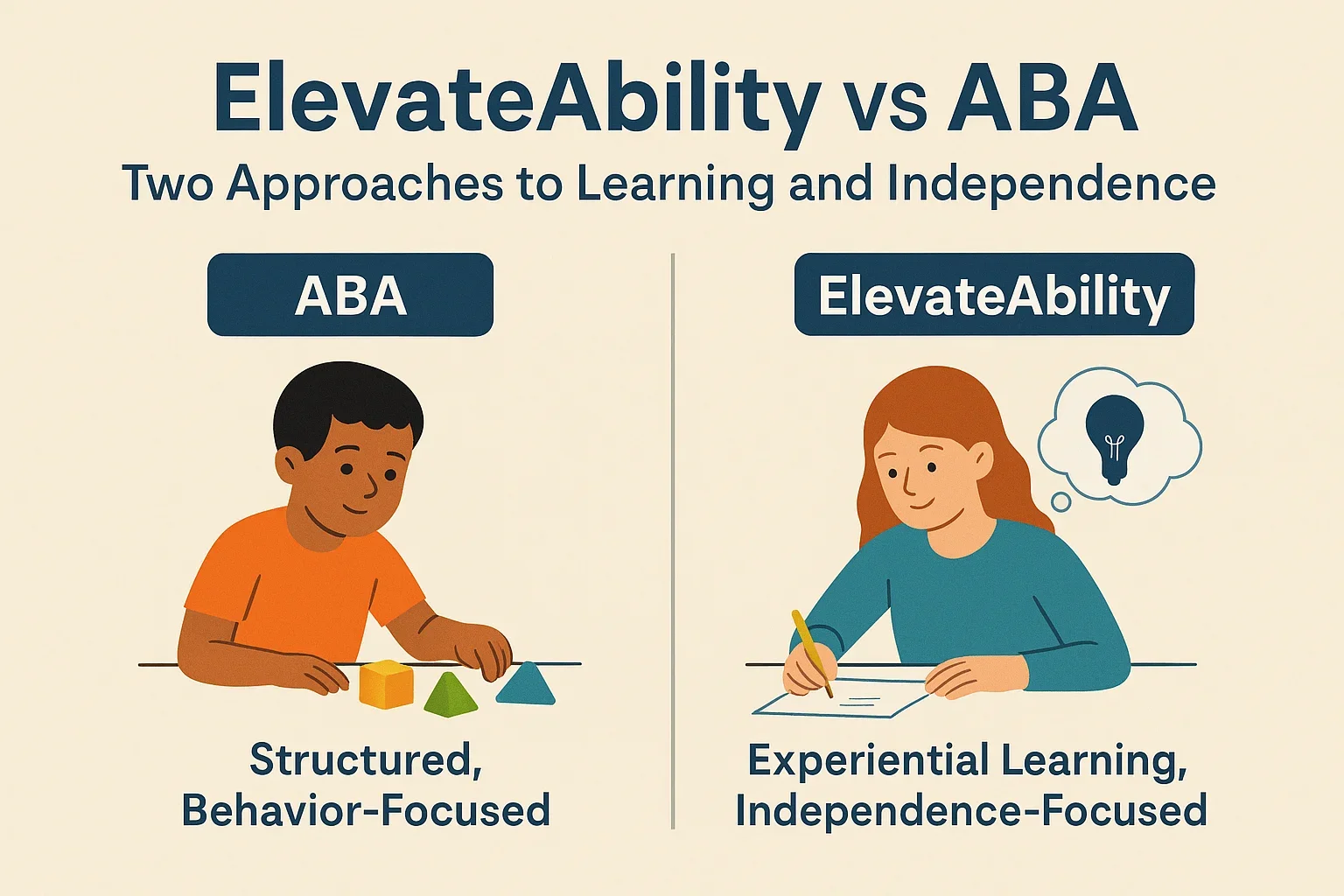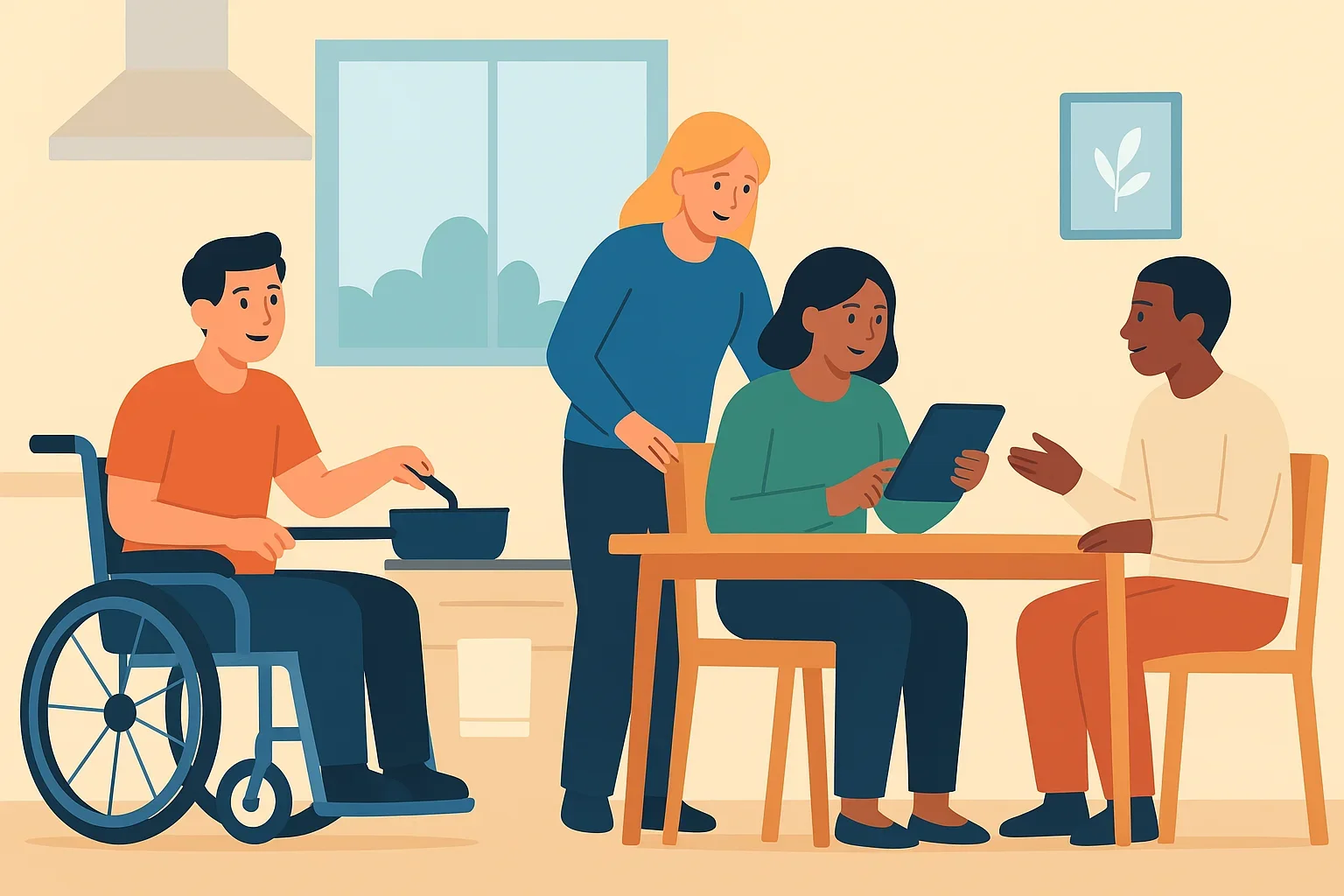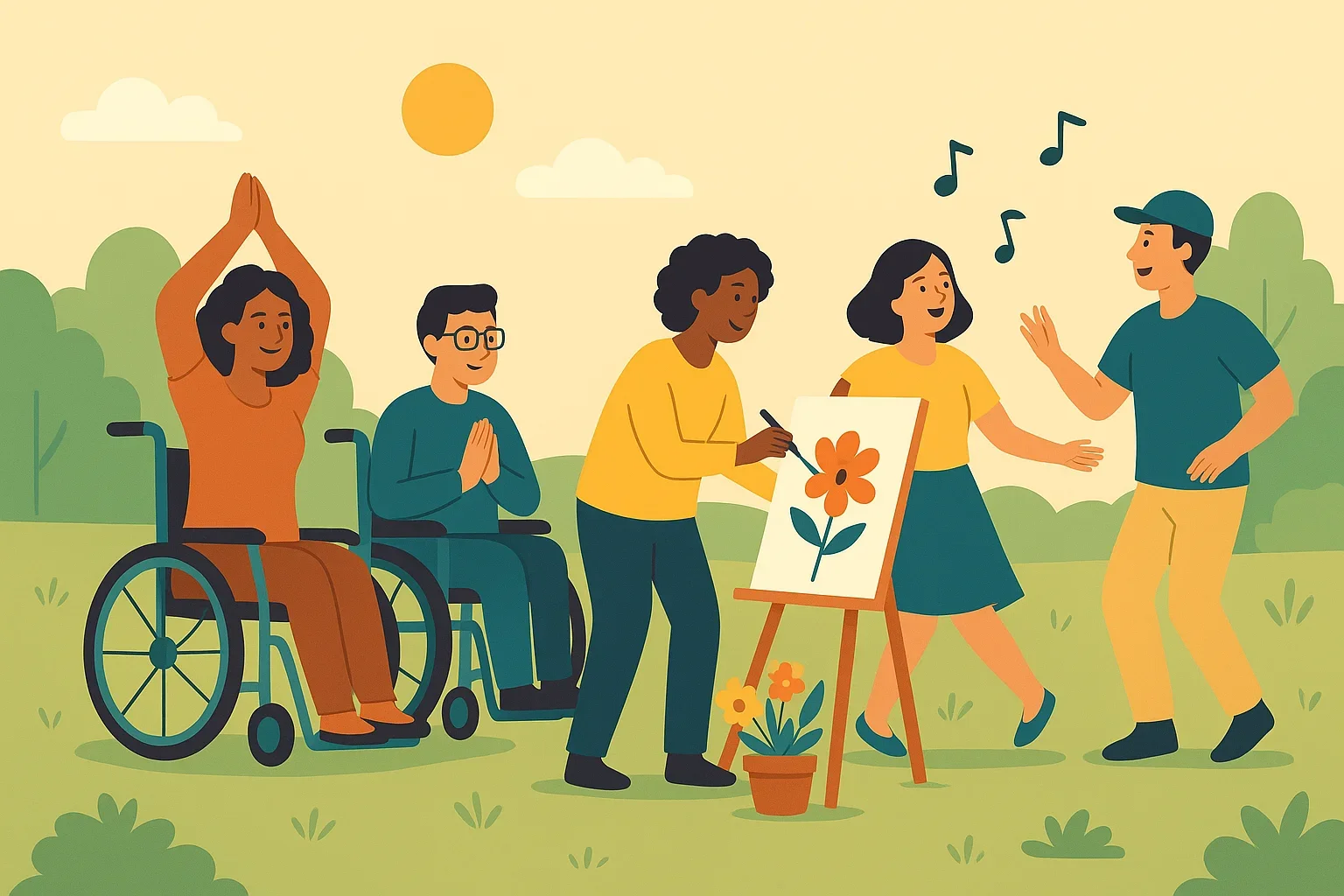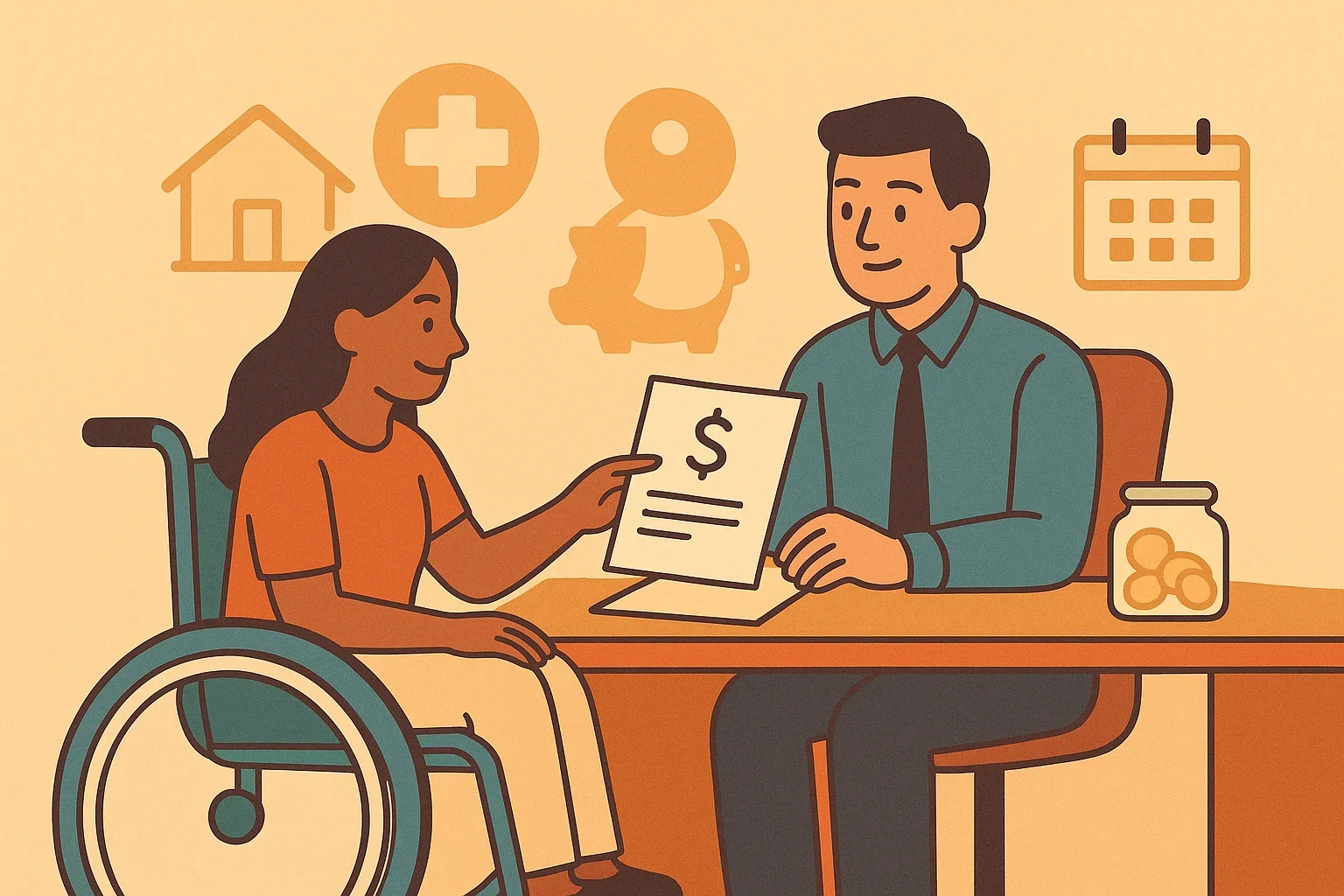Explore Tools, Tips, and Stories to Support Independence
Resources
Tips for Building Independence at Home
A practical guide for families with everyday strategies to support independent living like encouraging choice, creating routines, and teaching daily tasks.
Care Management Guide for Adults with Disabilities
This simple planning tool helps clients and families stay organized with monthly check-ins, seasonal prep, home maintenance, and budgeting reminders.
Independent Living Skills Checklist
A printable checklist that helps clients and families assess key life skills, set goals, and track progress in areas like hygiene, cooking, safety, and more.
The ElevateAbility Blog
How Self Determination Theory Explains Human Motivation
Motivation is what drives our actions and decisions. Understanding it helps people achieve goals, stay productive, and improve overall wellbeing in daily life.
A Complete Guide to the Self Determination Program for Families
The Self Determination Program gives individuals with developmental disabilities and their families more choice and control over the services and supports they receive.
How to Improve Social Skills in Adults for Better Communications
Strong social skills are essential for adults to navigate both personal and professional life effectively.
How to Help Adults with Dyslexia Manage Everyday Tasks Efficiently
Dyslexia is a learning difference that primarily affects reading, writing, and language processing skills.
A Complete Personal Hygiene Checklist for Adults with Disabilities
Personal hygiene means keeping your body clean and healthy through regular habits like bathing, brushing teeth, grooming, and wearing clean clothes.
Developmental Delay vs Intellectual Disability: Understand the Key Differences
Understanding the difference between developmental delay vs intellectual disability is essential for parents, educators, and healthcare professionals who support children with learning or developmental challenges.
Top Life Skills Activities for Adults with Disabilities to Foster Independence
Structured activities for special needs adults play a vital role in building independence, boosting confidence, and enhancing overall well-being.
Top Essential Independent Living Skills Checklist for Adults with Disabilities
Independent living for adults with disabilities is about more than just managing day-to-day tasks. It focuses on gaining confidence, freedom, and control to make choices that shape one’s own life.
Why Access to Mental Health Services Matters for Adults with Intellectual Disabilities?
Intellectual disabilities refer to limitations in intellectual functioning and adaptive behaviors that affect a person’s ability to learn, communicate, and handle everyday tasks independently.
The 5 Most Common Developmental Disabilities Affecting Adults
Developmental disabilities are a group of conditions that arise from impairments in physical, learning, language, or behavioral areas. These conditions typically begin during childhood, may impact daily functioning, and often last throughout a person’s lifetime.
Why Programs for Young Adults with Disabilities Are Essential for Inclusion
Creating a society where everyone feels valued and included is an ongoing journey. For many families, one of the most important parts of this journey is ensuring that young adults with disabilities have the same opportunities to grow and succeed as their peers.
ElevateAbility vs ABA: Two Approaches to Learning and Independence
Families often ask us the same question: what does ABA stand for, and how is it different from what we do at ElevateAbility? ABA, or Applied Behavior Analysis, is a structured therapy model that has helped many learners, especially children with autism, by focusing on reinforcing specific behaviors and reducing challenges through consistent practice.
How Life Skills for Adults with Disabilities Improve Daily Living and Confidence
For many adults with disabilities, developing strong life skills is the foundation of greater independence and self-confidence. These skills extend beyond basic routines and include the ability to manage daily tasks, navigate social situations, and make informed decisions that shape a fulfilling life.
Top Health and Wellness Activities for Adults with Disabilities to Try
Health and wellness play a vital role in improving quality of life, and this is especially true for creating opportunities that promote meaningful activities for adults with developmental disabilities, including those with conditions such as Down syndrome.
The Importance of Financial Planning for Disabled Adults
Financial planning for disabled adults goes beyond simply budgeting — it’s about creating a roadmap that ensures stability, independence, and the ability to handle life’s expected and unexpected expenses. For many, especially those navigating money management for adults with learning disabilities or other unique needs,
A Day in the Life
When Jordan’s family advocated for continued real-world learning beyond the classroom, they worked with their local school district to secure funding for a partnership with ElevateAbility. Together, we created a person-centered mentorship plan to continue building Jordan’s independence—at home, at work, and in the community.
From Doing to Teaching
If you’re a caregiver—or a parent of someone with a disability—you probably know this feeling: it’s just easier to do it myself. Teaching takes time, energy, and patience, and when you’re juggling medications, appointments, meals, and everything in between, it’s no wonder skill-building often gets pushed aside.
The Epic Partnership
At ElevateAbility, we know that personal growth doesn’t happen in a vacuum. It doesn’t just come from one-on-one coaching or from group conversations—it comes from a dynamic blend of individual support and shared experiences. That’s why our Life Skills Mentor program and Social Club, while each valuable on their own, are especially powerful when used together—designed to complement and reinforce one another for deeper, more lasting growth.
Why Specialists Matter
Caregiving is essential—but it’s not the same as teaching. Just like you wouldn’t rely on a general practitioner for complex heart surgery, independence coaching for people with disabilities needs specialists dedicated to skill development—not just general support.
At ElevateAbility, we’ve chosen to specialize—and here’s why it matters.
Creating Space for Real Connection
When we think back on our high school and college years, many of our most formative social moments didn’t happen during structured events or formal classes. They happened late at night in dorm hallways, lounging on worn couches in shared houses, or spontaneously pulling together a game in someone’s backyard.
